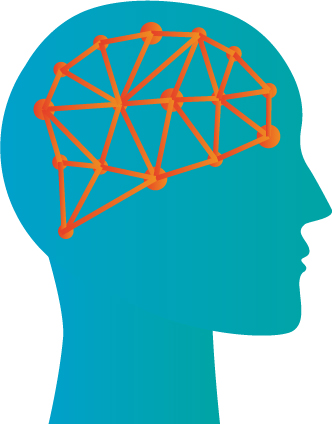A neuropsychological evaluation (or assessment) is a comprehensive assessment that looks at different skills, such as:

Cognition

Language

Memory

Attention

Executive Functioning

Visual-Spatial Skills

Fine and Gross Motor Abilities
While the description may sound intimidating (especially 4–6 total hours’ worth of testing), most children actually leave my office thinking the experience was “kind of fun!” Games, questions, and various types of puzzles are used to assess these different skill areas. When the child is done, the tests are scored and compared to the typical performance of other kids their age. This comparison helps identify areas where children performed well … and areas where they need support or help.
We use this information to obtain a “snapshot” of how the child is doing and to develop a plan to support more vulnerable areas. At completion of the assessment, a written report is provided, so families have concrete actions steps to take to better assist their child.
Follow-up evaluations (always my favorite when children come back to visit) help monitor progress, to ensure skills are progressing. As every child learns and grows differently, it’s important to figure out your child’s learning and developmental style, so that the appropriate services and supports are put in place.

An overview of the process:
In my practice, a typical neuropsychological evaluation will consist of four appointments. During the first (intake) appointment, we will review your child’s developmental history and identify your goals for the evaluation. From this meeting, we will develop an assessment plan based on your goals and the information provided.
-
Appointments are scheduled.
-
Parents submit necessary paperwork and documentation.
-
Intake meeting (parent/s only): This is our chance to get together to discuss your child, the reason for referral, review outside documentation and set goals for the assessment.
-
Testing Appointments (usually two appointments that last 2–3 hours each): In each testing visit, I work directly with your child through games, questions and other activities. While the activities generally seem like play to your child, they are assessing the various functions outlined above (i.e., cognition, attention, language, etc.). Assessments are customized to answer the referral question. Information is also gathered from school and home as part of the process.
-
Feedback Meeting (Parent/s Only): At this meeting, we talk through all the test results. Your child’s strengths are clearly articulated, as are any areas of difficulty. We review what it all means; for example, “Is there a diagnosis?” and “What do we do?” Specific recommendations are offered verbally, but parent(s) don’t need to worry about taking notes because a full, detailed written report will be provided.
-
Report: This written document will summarize our work together. The information contained will include the reason for referral, important developmental/medical/educational history, test findings, diagnostic impressions and individualized treatment recommendations. For families who have elected academic achievement testing and consultation services, school-based recommendations can also be included.
Optional services that can be included with the evaluation:
After the neuropsychological assessment is completed, families may want additional support. Team meetings at school can be intimidating and some families want help presenting the findings and recommendations. In this situation, I can be available to attend team meetings. This service cannot be billed to insurance and is offered on a private pay basis.
There are also times when more information is needed about a child’s performance in school, or the types of methodologies the teaching team is using. School observations are available to pair together the child’s school functioning and test results, to better refine programming recommendations and to facilitate communication with the team. Arrangements for school observations are made privately and coordinated through the family with the school district.


Reasons for Referral
The reason for referral varies for each child. Some children are referred due to academic difficulties in school. Other children may be struggling with social skills and/or behavior. Sometimes a pediatrician refers due to a potential Autism Spectrum Disorder. A psychiatrist, primary care physician or psychopharmacologist may refer for diagnostic clarification before prescribing medication.
Some parents want to better understand the way their child learns and processes information, so that they can develop more effective parenting techniques. These are countless reasons that children are referred for evaluation; these represent a small number of possible reasons.
Depending on the referral question, skills that can be assessed during the evaluation include:
For more information about pediatric neuropsychological evaluations, see these Frequently Asked Questions.

In my years of providing advocacy services, I have read hundreds of neuropsychological assessments. When I first read Dr. Brabeck’s, I was immediately impressed by her insights and lengthy discussion of the unique challenges faced by the child being assessed. More impressive than that was her involvement and commitment in each case, from attending team meetings to follow up phone conferences to make sure her recommendations were being implemented, to comforting families during moments of crisis. Working collaboratively with parents and advocates is critical for any outside evaluator, and Dr. Brabeck went above and beyond. Working with her makes what can be a difficult process so much easier, and she stays involved every step of the way. I highly recommend her services for families, and as an advocate, I appreciate her accessibility to all members of the child’s team. She has been a godsend for so many families!
– Karla Murphy, North Shore Advocacy Services
